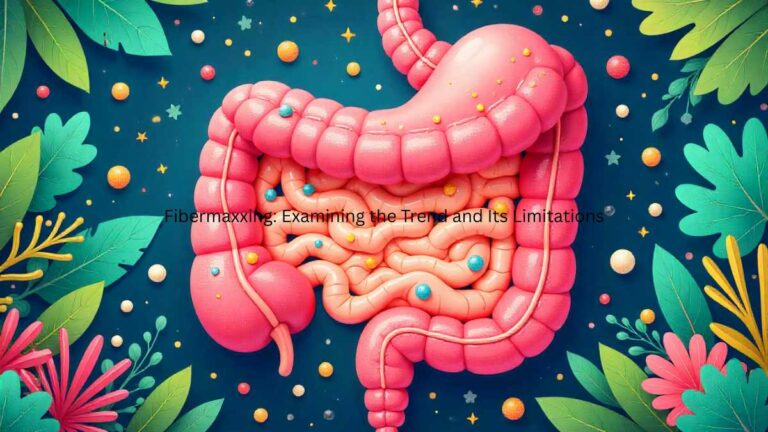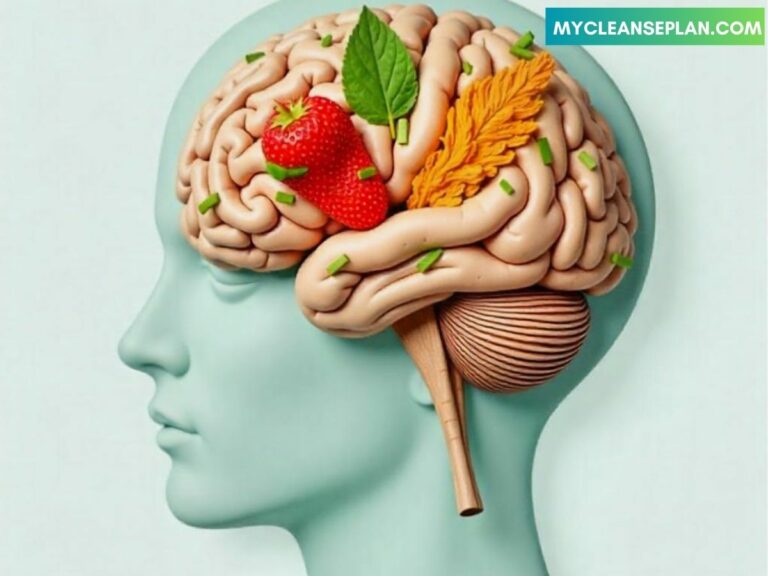How To Stop Hunger Pangs When Fasting?
Fasting is a great way to get fit and lose weight. But sometimes, hunger pangs can be quite annoying. How do you deal with them?
Fasting is a practice where you abstain from food or drink for a specific period of time.
There are various types of fasting, such as water fasting, juice fasting, etc. The benefits of fasting include increased energy levels, improved metabolism, and better sleep quality.
However, fasting can also cause some unwanted side effects. This is why it is important to eat before, during, and after fasting.
Here are some tips to prevent hunger pangs. Fasting is a great way to cleanse your body and get rid of toxins.
But sometimes, you might experience some annoying side effects such as hunger pangs. How can you overcome them?
What Is Fasting?
Fasting is a practice where you abstain from food or drink for a certain period of time. Some people choose to go without food for days, weeks, or even months at a stretch.
The benefits of fasting include detoxification, improved health, increased energy levels, better sleep patterns, and reduced stress and weight loss.
Fasting has become very trendy these days. People are now choosing to fast for various reasons. Some fast because they want to lose weight, while others fast to improve their health.
If you are thinking of starting a fast, then you should know that there are several things you need to consider before embarking on a fast.
What Is Intermittent Fasting?
Intermittent fasting refers to the practice of fasting intermittently. This means that you fast intermittently. However, there are two different types of intermittent fasting:
• Alternate Day Fasting (ADF)
• 5:2 Diet
Alternate Day Fasting
With ADF, you alternate between fasting and non-fasting days. For example, you might start by fasting for 16 hours one day and then eating all day the next day.
Then, you would go back to fasting for another 16 hours.
5:2 Diet
With the 5:2 diet, you only fast for two days each week. On the remaining five days, you consume whatever foods you want.
Benefits Of Intermittent Fasting
There are many benefits of intermittent fasting. Some of them include:
- Weight Loss
According to experts, intermittent fasting can help with weight loss, and prevent weight gain.
- Better Health
Research shows that intermittent fasting can improve overall health.
- Improved Moods
Some studies suggest that intermittent fasting may be useful in improving moods, and many people who do intermittent fasting report feeling mentally clearer.
- Increased Energy Levels
People who use intermittent fasting often say they experience increased energy levels.
- Healthier Skin
Some research suggests that intermittent fasting can help boost skin health.
- Better Sleep Quality
Many people who use intermittent fasting claim that their sleep quality improves when they fast.
- Reduced Stress Levels
Many people who try intermittent fasting find that their stress levels decrease.
How Does Intermittent Fasting Work?
When you fast, your body goes through a process called autophagy. Autophagy is a natural process where cells recycle themselves.
It helps remove damaged or old parts of the cell so that the cell can function properly.
During this process, your body breaks down proteins, fats, carbohydrates, and other substances. Your liver also produces ketones during this process.
Ketone bodies are used as an alternative fuel source for the brain and muscles.
When you stop fasting, your body stops producing ketones. As a result, your brain starts using glucose instead of ketones.
This causes you to crave food. You will therefore have cravings for unhealthy foods like sweets and processed snacks. These cravings lead to overeating.
How To Start Intermittent Fasting?
Choose A Time Of Day
Choose a time of day when you know you won’t be tempted to overeat. If you choose to fast
at night, avoid eating after 8 pm.
Set Up Your Schedule

Set up a schedule for yourself. Make sure you stick to it.
Plan Ahead
Plan ahead what you will eat before you fast. Don’t wait until you are starving to eat.
Eat Small Meals
Eat small meals throughout the day. This way, if you feel hungry, you won’t binge on high-calorie foods.
Drink Plenty Of Water
Drink plenty of water throughout the day. This keeps you hydrated.
Avoid Alcohol And Caffeine
Avoid alcohol and caffeine because these drinks increase appetite.
Exercise Regularly
Exercise regularly. This will keep your metabolism going.
Keep Yourself Motivated
Keep yourself motivated. Tell yourself why you are doing intermittent fasting, and remember to reward yourself every now and then – this will keep you on track.
Be Patient
Don’t expect results immediately. Give intermittent fasting some time to work its magic.
It is also important to remember not to overdo it – starving yourself is not the desired end goal here.
Get Support From Friends Or Family
Get support from friends or family. They will encourage you to continue with intermittent fasting.
What Should I Consider Before Fasting?
Before starting any type of fast, you must first make sure that you have done the following:
- Read Up On Fasting
You will find plenty of information about fasting online. Make sure that you read all the details so that you fully understand what you are doing.
- Do A Trial Run
Try out different types of fasts before deciding which one suits you best. For example, if you decide to try out a water fast, you could start by drinking only water for 24 hours.
Or you could opt for a juice fast, where you consume only juices for 24 hours.
- Choose An Appropriate Time
Most people prefer to fast in the morning when they wake up. However, this may not work for everyone. So, you must experiment with different times.
- Prepare Yourself Mentally
It’s important to prepare yourself mentally before beginning a fast. You should be confident about how long you plan to fast for.
Also, you should be prepared for any possible problems that may arise.
- Get Enough Rest
If you are planning to fast for more than 3-4 days, then you should ensure that you get adequate rest. Your body needs sufficient sleep to function properly.
- Avoid Alcohol
Alcohol can interfere with your ability to stay hydrated. If you are going to fast for longer periods, then you should avoid consuming alcohol.
- Eat Healthy Foods
When you eat after and before your fast, you should focus on eating nutritious meals.
Include fruits, vegetables, nuts, seeds, whole grains, lean meats, fish, eggs, beans, lentils, tofu, and other plant-based proteins.
- Drink Lots of Water
Water is essential for staying hydrated. It helps flush out toxins from your system. Therefore, you should drink lots of water throughout your fast.
How To Stop Hunger Pangs During A Fast?
Hunger pangs are common among people who are fasting. They usually occur between 2 and 4 hours after you stop eating.
These feelings of hunger come from your stomach telling you that you are hungry.
However, you don’t have to worry as long as you follow the tips below. Here are some ways to help you overcome hunger pangs during your fast:
- Drink Plenty Of Fluids
Drinking enough fluids is also an effective way to deal with hunger pangs. Try to drink 8 glasses of water every day.
- Avoid Eating Too Much At One Meal
It is better to spread your food intake over multiple meals. This will keep your blood sugar levels stable and reduce the chances of getting hungry again.
- Don’t Skip Breakfast
Breakfast is the most important meal of the day. Skipping breakfast means that you are depriving your body of vital nutrients.
- Consume Smaller Meals More Frequently
This is especially true if you are fasting for more than 12 hours. In such cases, it is advisable to break your fast into smaller portions.
- Eat Slowly
The faster you eat, the higher your blood sugar level becomes. The high blood sugar levels make you feel hungry. This leads to overeating later on.
What Is Mindful Eating?

Mindful eating is a technique that involves paying attention to what you are doing while you eat. It encourages you to slow down and enjoy each bite of food.
Why Should I Do Mindful Eating?
There are many benefits associated with mindful eating. Some include:
- Managing Your Appetite
One of the main reasons why people struggle with controlling their appetite is because they don’t pay attention to what they are eating. By practicing mindful eating, you will learn to recognize when you are feeling hungry.
- Reducing Stress Levels
Stressed individuals often find themselves reaching for unhealthy foods like snacks and sugary drinks. However, by practicing mindful eating, you can reduce stress levels.
- Improving Digestion
If you practice mindful eating, you will notice how much easier it is to digest your food. You will also notice fewer bloating and gas issues.
- Boosting Immunity
Eating mindfully improves your immune system. This is because you will be able to avoid consuming too much processed junk food. Instead, you will consume healthy fruits and vegetables.
- Maintaining Healthy Weight
Mindful eating allows you to maintain a healthy weight. You will eat fewer calories than usual. Also, you won’t overeat at mealtimes.
How Does Mindful Eating Work?
When you practice mindful eating, there are several things that you should do. First, you must become aware of your emotions.
Next, you need to focus on your senses. Finally, you need to use these three factors to determine whether or not you are truly hungry.
Become Aware Of Your Emotions
When you start practicing mindful eating, you need to become aware of your feelings. For example, if you are feeling stressed out, you might want to reach for something sweet. However, if you are feeling anxious, you may want to eat something salty.
Focus On Your Senses
Once you have become aware of your emotions, you need to focus your attention on your senses. If you are feeling stressed, you might notice that you are clenching your jaw. This indicates that you are feeling tense. As a result, you will want to take deep breaths.
Determine Whether Or Not You Are Truly Hungry
Once you have focused on your emotions and your senses, you need to ask yourself whether or not you are actually hungry.
If you are feeling anxious, then you probably aren’t really hungry. However, if you feel relaxed, then you most likely are.
Practicing mindfulness during meals helps you to control your hunger pangs. In addition, it helps you to manage your emotions.
Explore Also:
Creativehouseblog
Dietsheriff
Gigasecurehome
Therefore, this technique can help you to gain better control over your cravings.
Final Thoughts
Whether you are struggling with emotional eating, struggling to lose weight, or simply wanting more energy, an intermittent fasting plan could be the answer to your struggles, offering great results and lifelong health and wellness.







![Optimize Your Digestion Gut Strategies for Shift Workers & Night Owls[1]](https://mycleanseplan.com/wp-content/uploads/2025/11/Optimize_Your_Digestion__Gut_Strategies_for_Shift_Workers__Night_Owls1-768x448.jpg)